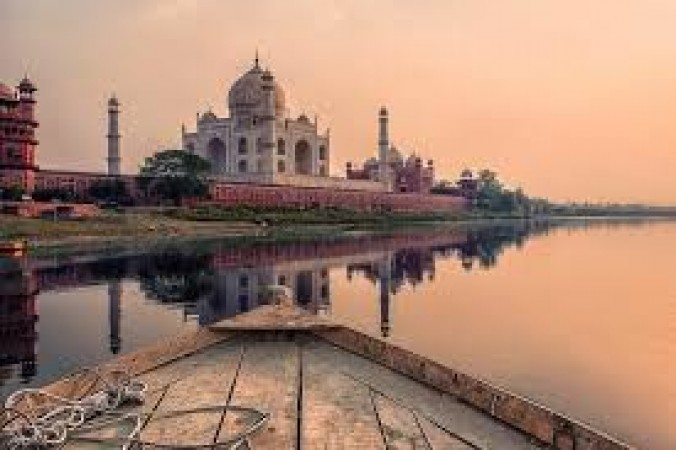
The Yamuna River, originating from the pristine Yamunotri Glacier in the Himalayas, is one of the most sacred rivers in Hinduism. With a rich cultural and religious heritage, the Yamuna holds immense significance for millions of devotees across India. The Yamuna River holds a special place in Hinduism, symbolizing spirituality, purity, and devotion. Its association with Lord Krishna and its mention in ancient scriptures make it an important pilgrimage site for millions of devotees. However, the river's environmental challenges necessitate urgent action to restore and protect its pristine beauty. By combining religious sentiments with sustainable practices, it is possible to preserve the sacredness of the Yamuna River for generations to come, ensuring a harmonious coexistence of faith and environmental conservation.
According to Hindu mythology, the Yamuna is considered the beloved consort of Lord Krishna, one of the most revered deities in Hinduism. It is believed that Lord Krishna spent his early childhood in Vrindavan, a town located on the banks of the Yamuna. Many mythological stories and divine pastimes associated with Lord Krishna are centered around the Yamuna River, making it a sacred pilgrimage site for devotees seeking spiritual enlightenment. The Yamuna River holds great importance in Hindu religious practices. Devotees often engage in various rituals and ceremonies as a mark of devotion and purification. Taking a holy dip in the Yamuna is believed to cleanse one's sins and purify the soul. Numerous ghats (steps leading to the riverbank) are present along the river's course, including the famous Vishram Ghat in Mathura and the Kesi Ghat in Vrindavan, where devotees gather for prayers, rituals, and immersion of ashes.
The Yamuna River plays a central role in several Hindu festivals celebrated with great fervor and enthusiasm. One such festival is Yamuna Jayanti, also known as Yamuna Chhath or Yamuna Puja, which commemorates the birth of the river. Devotees offer prayers, perform aarti (ritual of waving lamps), and engage in processions along the riverbanks. Similarly, during the festival of Holi, the famous Lathmar Holi in Barsana and Nandgaon showcases colorful celebrations that are deeply intertwined with the Yamuna's presence. Despite its religious and cultural significance, the Yamuna River faces significant environmental challenges. Rapid urbanization, industrialization, and untreated sewage discharge have led to pollution and the deteriorating health of the river. Efforts are being made by various organizations, government bodies, and environmental activists to restore the Yamuna's glory. The National Mission for Clean Ganga (NMCG) and other initiatives aim to reduce pollution, promote sustainable practices, and improve the overall ecosystem of the river.
also read - Yamunotri and Gangotri: Sacred Himalayan Shrines of India
Indian Rivers: India's only male river, which is also revered by people of other religions